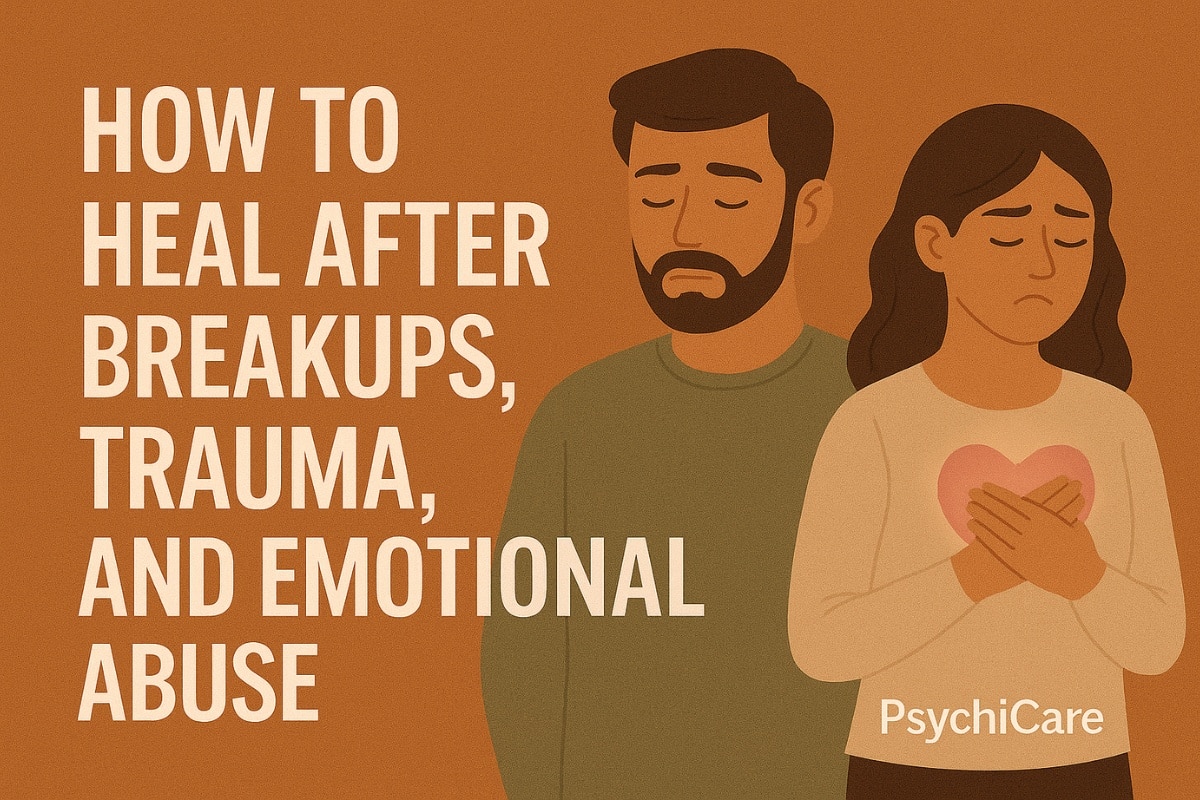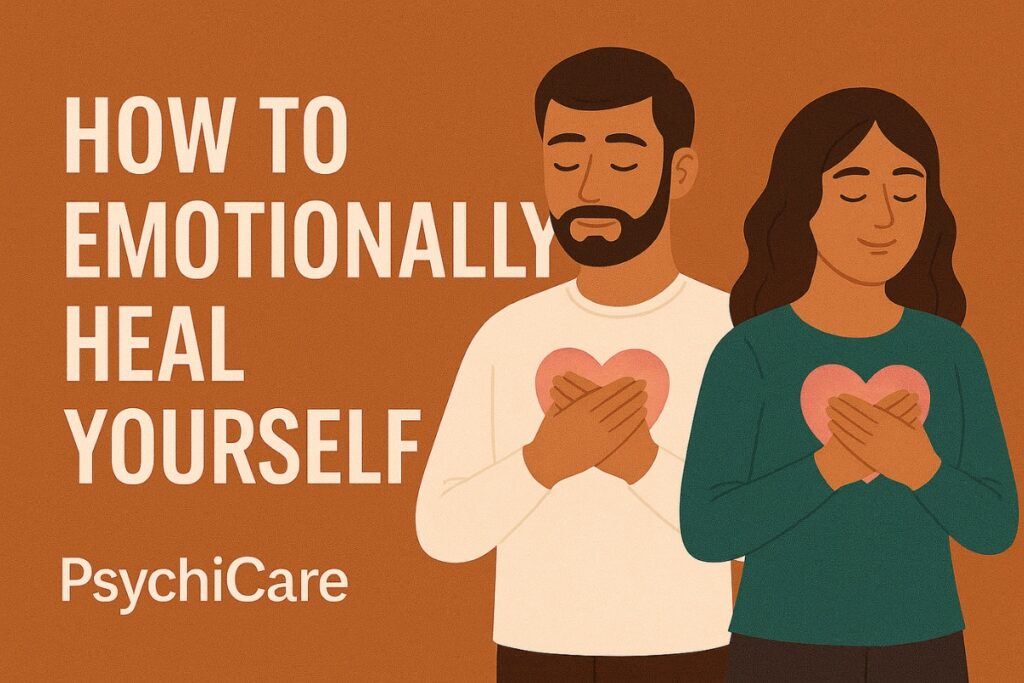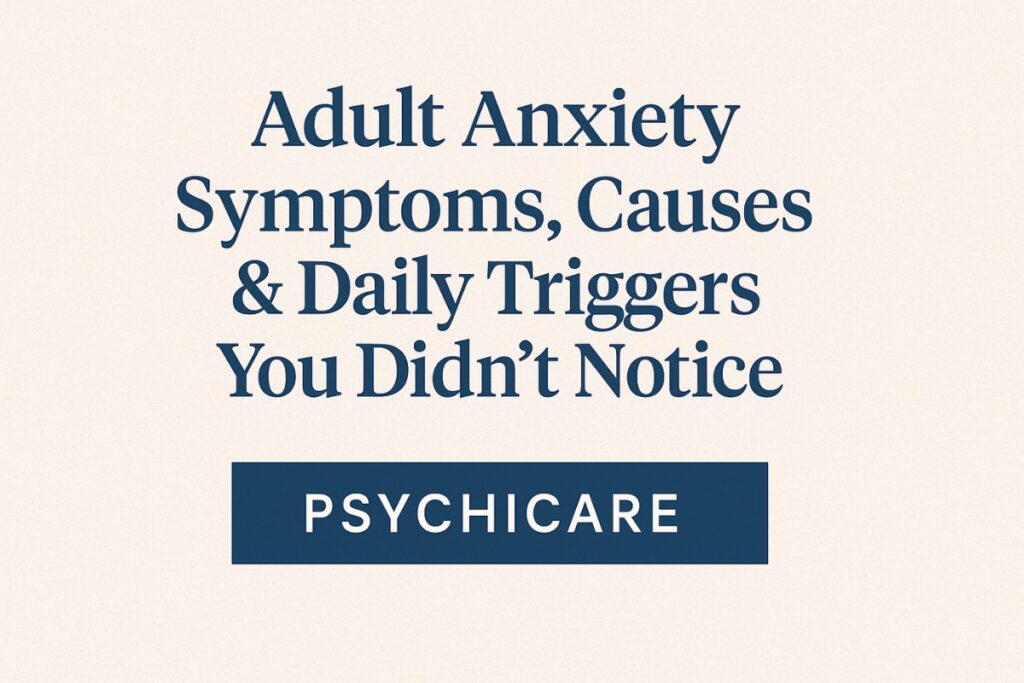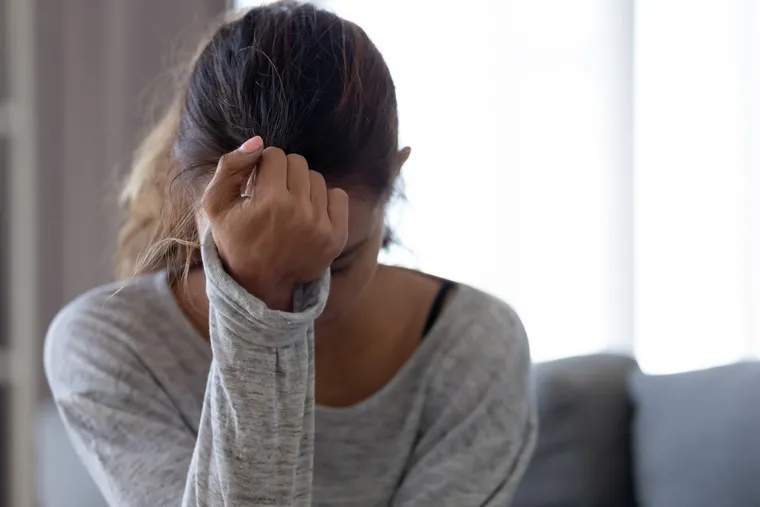Updated: November 2025 · Enhanced explanations and added grounded self-help methods.
Wondering how to emotionally heal yourself after heartbreak, trauma, or daily stress? Healing isn’t about quick fixes, it’s about small steps that restore your mind and heart.
Feeling broken inside isn’t something you can just “snap out of.” A breakup, betrayal, or years of trauma can leave wounds you don’t see, but you feel them every day. The good news? You can learn how to heal yourself mentally and emotionally. It takes time, but the process is real, and science shows emotional healing improves your sleep, focus, and even your immune system.
This isn’t about quick fixes. It’s about small, daily steps that help you rebuild from the inside out.
What Emotional Healing Really Means
Emotional healing isn’t about pretending nothing happened. It’s about slowly learning to live with what you went through without letting it control your life. Think of it like a cut on your skin; you don’t forget it happened, but over time, the wound closes, and it doesn’t hurt the same way anymore.
Almost everyone goes through something tough. In fact, studies show that about 7 out of 10 people face a major emotional trauma at some point in life. When we don’t deal with it, it can show up as stress, anxiety, sadness, or even body pains.
Healing yourself emotionally simply means giving your mind and heart the care they need so you can move forward, one step at a time.
10 Signs You Need Emotional Healing
Emotional pain doesn’t always look obvious. In today’s world, it often hides behind habits or feelings we’ve normalized. Here are some deeper signs to notice:

- You can’t stop overthinking – replaying conversations, imagining worst-case scenarios, or second-guessing yourself all the time.
- Social media makes you spiral – comparing your life to others leaves you drained, anxious, or not good enough.
- You feel emotionally exhausted even when “nothing happened” that day.
- You keep attracting the same unhealthy relationships and wonder why the pattern repeats.
- You distract yourself with work, Netflix, or scrolling just to avoid being alone with your thoughts.
- You downplay your feelings by saying “it’s not a big deal” when deep down it actually hurts.
- You struggle with boundaries; either you say yes to things you don’t want, or you cut people off completely.
- You feel a constant emptiness that food, shopping, or hookups can’t really fill.
- You notice body reactions like tightness in your chest, stomach knots, or headaches whenever emotions surface.
- You don’t trust happiness when good things happen; you wait for them to fall apart.
These aren’t “weaknesses.” They’re signals your mind and body are asking for healing. Ignoring them just buries the pain deeper, but noticing them is the first real step forward.
Why Emotional Healing Matters for Mental Health
When you don’t heal emotionally, the pain doesn’t just sit quietly; it shows up in your mind and body.
- Anxiety and depression often grow from unprocessed hurt.
- Sleep and focus suffer when your brain is stuck in stress mode.
- Relationships become harder when old wounds shape how you trust and connect.
- Your body reacts– chronic stress can weaken immunity and raise health risks.
Healing emotionally isn’t just “feeling better.” It’s protecting your mental health now and in the future.
10 Ways to Heal Yourself Mentally and Emotionally

1. Face Your Childhood Wounds
Many of us carry pain from childhood, being compared to siblings, not feeling “enough,” or growing up without real emotional support. Healing starts by admitting those memories still affect how you see yourself today.
2. Stop Comparing Your Life Online
Scrolling through perfect Instagram lives can quietly crush your self-esteem. Limit doomscrolling and remind yourself that healing isn’t a competition, it’s personal.
3. Give Yourself Space After a Breakup
Heartbreak can feel like losing a part of yourself. Instead of rushing into dating again, give yourself time to grieve and rediscover who you are outside of the relationship.
4. Learn to Talk Through Conflict in Marriage
Unhealed emotions often show up as constant fights or silent distance in marriage. Healing means learning to express hurt calmly instead of exploding or shutting down.
5. Take Care of Money Stress Before It Breaks You
Financial struggles can silently eat away at mental health. Start with small steps, budgeting, asking for help, or setting realistic goals so money doesn’t keep you trapped in shame.
6. Break the Cycle of Toxic Relationships
If you notice you keep attracting partners who lie, cheat, or dismiss you, it’s not bad luck; it’s unhealed pain. Healing means raising your standards and believing you deserve better.
7. Say No Without Feeling Guilty
At work or with family, many people (especially women) are taught to be “available” all the time. Setting boundaries is emotional self-care; it protects your peace and teaches others how to treat you.
8. Let Go of the Pressure to Be Perfect
Men often hide pain under “I’m fine.” Women often drown in the pressure to be everything for everyone. Healing means allowing mistakes, asking for help, and remembering you don’t need to prove your worth daily.
9. Reconnect with Your Body
Stress doesn’t just live in your head; it shows up as back pain, tight shoulders, or headaches. Gentle movement, breathing, or even dancing can help release what words can’t.
10. Reach Out for Help When It Feels Too Heavy
Healing alone is possible, but it’s harder. Talking to a therapist or even a trusted friend makes the process faster, safer, and less isolating. Asking for help is not a weakness; it’s wisdom.
Healing After Breakups, Trauma, and Emotional Abuse
Not all pain looks the same: heartbreak, trauma, or years of put-downs. But your mind and body carry them all. Here’s how healing can look in different situations:

How to Emotionally Heal Yourself After a Breakup
- Breakups can feel like losing part of yourself.
- Stop stalking their socials and rereading old chats.
- Let yourself miss them without running back.
- Rebuild your identity with new hobbies, friends, and routines.
How to Emotionally Heal Yourself For Trauma
- Trauma lives in the body as much as in memory.
- Triggers sounds, smells, and places, can flood you with emotions.
- Start with safety: calming routines, grounding, mindfulness.
- Every safe moment you create tells your body, “It’s okay again.”
How to Emotionally Heal Yourself After Emotional Abuse
- Emotional abuse leaves invisible scars: doubt, fear, and low self-worth.
- Gaslighting can make you question your own reality.
- Write down what really happened to remind yourself it was real.
- Surround yourself with people who lift you up, not tear you down.
Healing isn’t about forgetting. It’s about slowly reclaiming the pieces of you that pain tried to steal.
Why Therapy Is Key to Emotional Healing
Some wounds are too heavy to heal by yourself. You can read books, journals, or talk to friends, but therapy gives you something different: a safe space, expert guidance, and proven methods to rewire how your mind and emotions respond to pain.
Why Therapy Helps
- Breaks toxic cycles – if you keep repeating patterns in love, family, or work, therapy helps uncover the “why” and change it.
- Validates your feelings – instead of being told “just move on,” you hear, “your pain makes sense, and here’s how we can work through it.”
- Builds healthier coping tools – not just venting, but learning skills to calm anxiety, rebuild confidence, and handle triggers.
Why Online Therapy Works Today
Modern life doesn’t leave much time for long commutes to clinics. Online therapy means you can:
- Talk to a therapist from home, on your schedule.
- Access help no matter where you live, Delhi, Dubai, London, or New York.
- Choose therapists who speak your language and understand your culture.
- Get support privately without fear of stigma.
Therapies That Heal Emotional Wounds
Different approaches work for different kinds of pain:
- CBT (Cognitive Behavioural Therapy) – challenges negative thought loops and builds new ways of thinking.
- Trauma-focused therapy (like EMDR) – helps reprocess painful memories so they stop hijacking your present.
- Couples Therapy – useful if emotional wounds show up as constant fights, distance, or mistrust in marriage.
- Mindfulness-based therapy – trains your brain to slow down, stay present, and release overthinking.
Therapy isn’t about fixing you—because you’re not broken. It’s about giving you tools and support so you can carry your story without it crushing you.
Final Thoughts
Healing yourself emotionally isn’t a one-day process; it’s a journey. And while self-care and daily practices help, the truth is that expert support can make the difference between staying stuck and finally moving forward.
At PsychiCare, our team of licensed psychologists and therapists have 15–20 years of clinical experience working with individuals and couples across India, the US, UK, UAE, Canada, and Singapore. With over 1,000+ verified client reviews, we’ve been trusted to help people recover from heartbreak, trauma, emotional abuse, and deep-rooted mental health struggles.
What sets us apart is not just therapy, it’s accessibility. Through secure online sessions, you can connect with a therapist who understands your culture, your language, and your challenges, no matter where you are. Our approach combines compassion with proven methods like CBT, trauma-focused therapy, and couples counselling, giving you both emotional safety and practical tools to rebuild your life.
FAQs on Emotional Healing
How to heal yourself mentally and emotionally at home?
To heal yourself mentally and emotionally at home, create a daily routine with journaling, mindfulness, and light exercise. Avoid numbing habits like over-scrolling and focus on small, consistent self-care practices.
How to heal yourself mentally and emotionally NHS way?
The NHS recommends therapy, peer support groups, and lifestyle changes like better sleep, balanced eating, and stress management as ways to heal mentally and emotionally.
How to heal yourself mentally and physically?
Healing yourself mentally and physically goes hand in hand—exercise boosts mood, while therapy and self-reflection calm the mind. Together, they restore balance to body and mind.
How to heal yourself from emotional neglect?
To heal yourself from emotional neglect, start by acknowledging your unmet needs. Therapy helps you build self-worth and practice self-compassion, teaching you to give yourself what you didn’t receive.
How to heal your body from emotional trauma?
To heal your body from emotional trauma, focus on grounding techniques like deep breathing, yoga, or somatic therapy. Trauma often lives in the body, so releasing tension is key.
How to heal yourself mentally, book?
Books like The Body Keeps the Score (Bessel van der Kolk) and Feeling Good (David Burns) offer practical strategies to heal mentally. Choose titles that combine science with easy-to-follow tools.
How to heal yourself mentally and emotionally book?
Books such as Healing the Shame That Binds You (John Bradshaw) and Radical Acceptance (Tara Brach) guide readers in emotional healing and self-compassion.
Healing your emotional self quotes?
Healing your emotional self quotes often remind us that pain is temporary. For example: “Healing doesn’t mean the damage never existed. It means the damage no longer controls your life.”
Emotional healing examples?
Emotional healing examples include setting boundaries after toxic relationships, finally enjoying a hobby without guilt, or feeling safe enough to trust again.
Can you heal yourself mentally?
Yes, you can heal yourself mentally with self-care, mindfulness, and reflection. But professional support often makes the process safer and more effective.
Ways to practice emotional self-care?
Ways to practice emotional self-care include saying no without guilt, taking tech breaks, spending time in nature, and surrounding yourself with supportive people.
How to do emotional self-care?
To do emotional self-care, regularly check in with your feelings, journal honestly, and give yourself permission to rest when overwhelmed.
6 ways to heal yourself?
Six ways to heal yourself include: journaling, therapy, movement, healthy relationships, setting boundaries, and practicing forgiveness.
4 ways to improve emotional health?
Four ways to improve emotional health are: talking about your feelings, staying physically active, eating well, and asking for help when needed.




